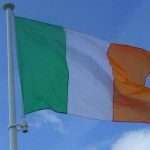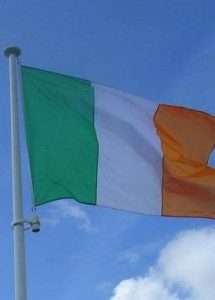Paddywhackery on the BBC
“Paddywhackery” is defined as fake or staged Irishness. It is the depiction of a people as overly fond of alcohol, as given to singing dirge-like songs in public houses, as given to a rebellious spirit and fighting. It is the stuff of the writing of lazy journalists and television producers.
The episode of Who do you think you are? featuring Boy George might have been a serious examination of his family roots in Dublin, instead stereotypes and an avoidance of serious questions were preferred.
At the age of six, Boy George’s grandmother was taken from the street outside her home in Dublin’s north inner city and was taken to the industrial school at Goldenbridge, an institution run by the Roman Catholic religious order, the Sisters of Mercy. The person responsible for taking her was one of the “cruelty men,” an NSPCC inspector accountable to no-one except a local committee. The industrial school at Goldenbridge was a a cruel and abusive institution made so by the religious sisters in charge. The 2009 Ryan Commission Report stated
The Sisters in charge during the relevant period were harsh and unfeeling towards the children. Humiliation and degradation were constant occurrences, both from the Sisters and from the lay staff. The children felt that no one cared for them and that they did not matter. Even the members of the Congregation who spoke to the Committee failed to appreciate that Goldenbridge was abusive because of the attitude of the Sisters who ran it. Hard work and dedication were no excuses for a regime that made children feel despised and worthless.
Despite repeated objections by Boy George, who had obviously read the report for himself, the BBC allowed a speaker to present a picture of the school as a benign institution which prepared girls for life outside. The speaker suggested that Boy George’s grandmother did not need to marry because she left with a job earning £15 a year. Only one line from the Ryan Report was read, a single sentence printed on a blank page. Goldenbridge continued until modern times, many of those who suffered within its walls, and who testified to the Ryan Commission, would have been pained by a programme that allowed an ambivalent attitude towards abuse. Presumably the BBC did not want to detract from the entertainment value of the programme by fully detailing the realities endured by the girls.
Stage Irishness includes tragedy and rebellion in its repertoire – and so there was extensive treatment of the story of Thomas Bryan, Boy George’s great uncle by marriage who was executed in March 1921 for his participation in an IRA attack on a British patrol in Dublin. Papers from the court martial were shown and then Boy George was taken to the hanghouse at Mountjoy where the execution chamber is still preserved. The mechanism was explained and then Boy George was asked if he might like to pull the lever for himself – he appeared to physically recoil at the suggestion.
A touch of humanity was allowed when he visited the grave of his great aunt, the family grave being marked by a small flat stone with the names stencilled on it. But, it being the BBC in Ireland, the story had to finish in a pub. Boy George was taken to listen to a traditional music group singing Kevin Barry, a lament about one of those executed along with Thomas Bryan. If a lament was necessary, why was it not sung at Bryan’s grave in Glasnevin Cemetery? Would that have not matched the stereotype?
Talking to a Dubliner this morning, he said he had no television so was unaware of the programme, but thought there were probably still people at the BBC who did not understand Ireland as it now is – modern, progressive and European.



Comments
Paddywhackery on the BBC — No Comments
HTML tags allowed in your comment: <a href="" title=""> <abbr title=""> <acronym title=""> <b> <blockquote cite=""> <cite> <code> <del datetime=""> <em> <i> <q cite=""> <s> <strike> <strong>